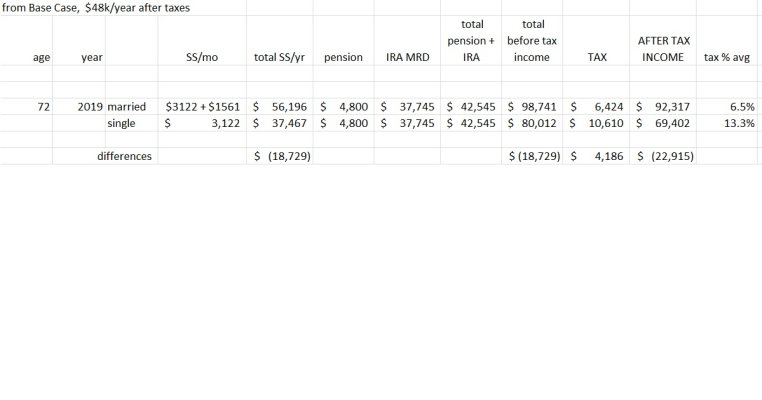In preparing and maintaining our retirement plan, there's a lot of consideration about longevity, life expectancy, etc., including a lot of talk about outliving our resources. But it got me thinking about the possible flip-side impacts of shorter longevity. With a ten year age difference, it is likely that one spouse will predecease the other by a significant number of years. Putting aside the emotional toll that causes, there are financial effects: While it will reduce some expenses (such as healthcare), it will also cut off some income: Without a doubt, social security benefits end (and it may also be true that some of the deceased's assets may be bequeathed to someone other than the spouse - but since that's an open-ended variable, let's ignore that). Furthermore, while to some extent, for at least part of retirement, each spouse acts as some measure of assurance against the need for long-term care, that assurance evaporates with the death of one of the spouses.
If you anticipate a significant amount of time where one spouse predeceases the other, is there anything specific you do to adjust your retirement plan to account for that?
If you anticipate a significant amount of time where one spouse predeceases the other, is there anything specific you do to adjust your retirement plan to account for that?

